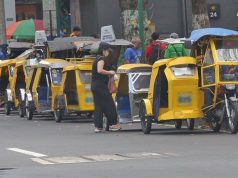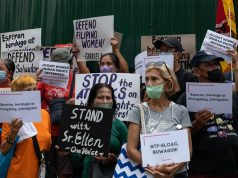MANILA – (UPDATED 5:45 p.m) Philippine National Police chief Ronald dela Rosa called community drop boxes into which tips on drugs and other crime can be dropped anonymously a good idea but stressed that reports would need validation to ensure they are not meant to even scores.
But the human rights group Karapatan rejected the idea, which the Department of Interior and Local Government intends to institutionalize by ordering its implementation as part of the community-based Mamamayang Ayaw sa Anomalya, Mamamayang Ayaw sa Iligal na Droga (MASA-MASID) program, saying it would cause more harm than good.
Guidelines for MASA-MASID contained in a DILG circular dated August 29 orders local government units down to the barangays to establish “modes of reporting” to encourage “community involvement on corruption, illegal drugs, criminality, violent extremism and other threats to peace and security.”
Sought for reaction, Dela Rosa, who is also known as “Bato,” said: “Well that’s good, dahil (because) we will be coming up with information na hindi natin makukuha (we cannot get) in (sic) any other means, dahil takot (ang) tao magbigay info (because people are afraid to provide information).”
At the same time, he emphasized that “hindi naman ibig sabihin lahat ng nilagay sa drop box ay kino-consider natin na totoo (it doesn’t mean everything placed in the drop box is considered true). That is why we have to validate that report.”
Karapatan, however, said the system, which has already come under criticism when it was first tried out in a Quezon City community, “will neither solve criminality (n)or ensure security of citizens, nor will it address the roots of rebellion in the country.”
Instead, the group said, it would “merely promote unnecessary paranoia and rifts between and among members of a community” and “anyone may be affected and can be targeted, regardless of guilt or innocence.”
Karapatan secretary general Cristina Palabay accused the DLG and police of “essentially recreating a hit list” by “asking everyone to write it for them.”
“This will be a random, irresponsible and ineffective campaign that can target anyone, not just suspected drug users but even activists and concerned citizens,” Palabay said. “Even without this drop box system, scores of people have already fallen victim to illegal arrests, how much more if such arbitrary measures are implemented?”
She cited “previous reports of the drug war campaign being used to fast-track counterinsurgency operations, and this scheme will inevitably lead to more similar cases.”
NUPL: ‘another draconian snowball’
A lawyers’ group, meanwhile, described the DILG order to install drop boxes in LGUs to name criminals and drug users “another draconian snowball in the avalanche of dangerous shortcuts to fight crime and drugs.”
The National Union of People’s Lawyers (NUPL) warned, “We might as well have drive-through counters for good measure.”
As illustration of the risks, said the statement by lawyers Edre Olalia and Ephraim B. Cortez,
“anybody can invent, manufacture, recycle, or abuse unvetted information to the prejudice especially of ordinary law-abiding citizens and even critics and dissenters.”
NUPL said it will study “whether this open violation and threat to the rights to due process and presumption of innocence has reached the legal level of an actionable wrong ripe enough to be immediately challenged in court.”










